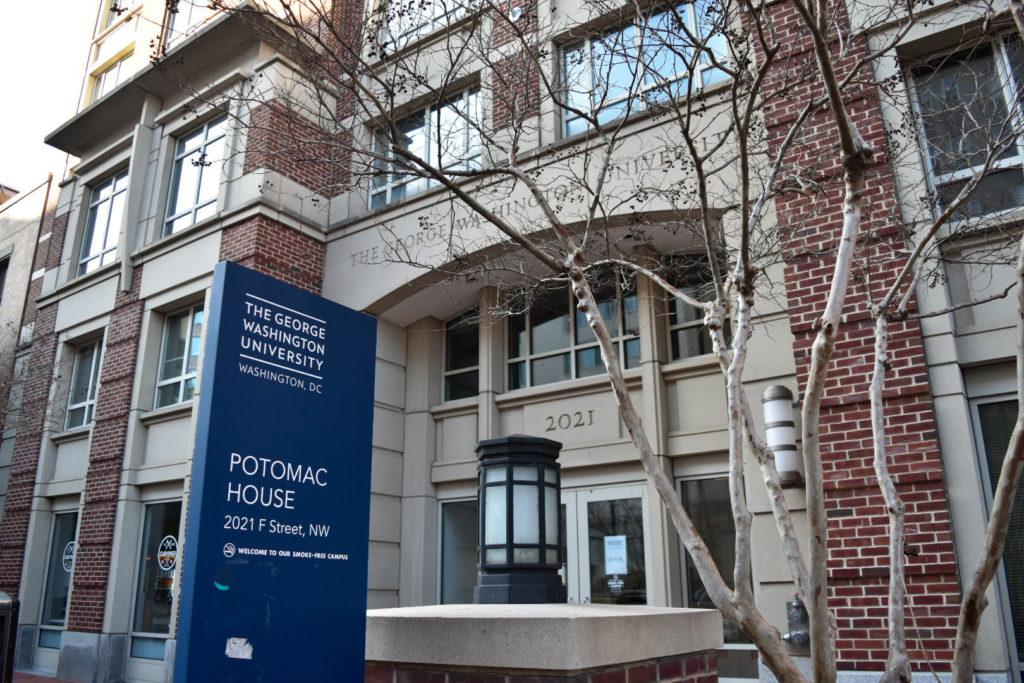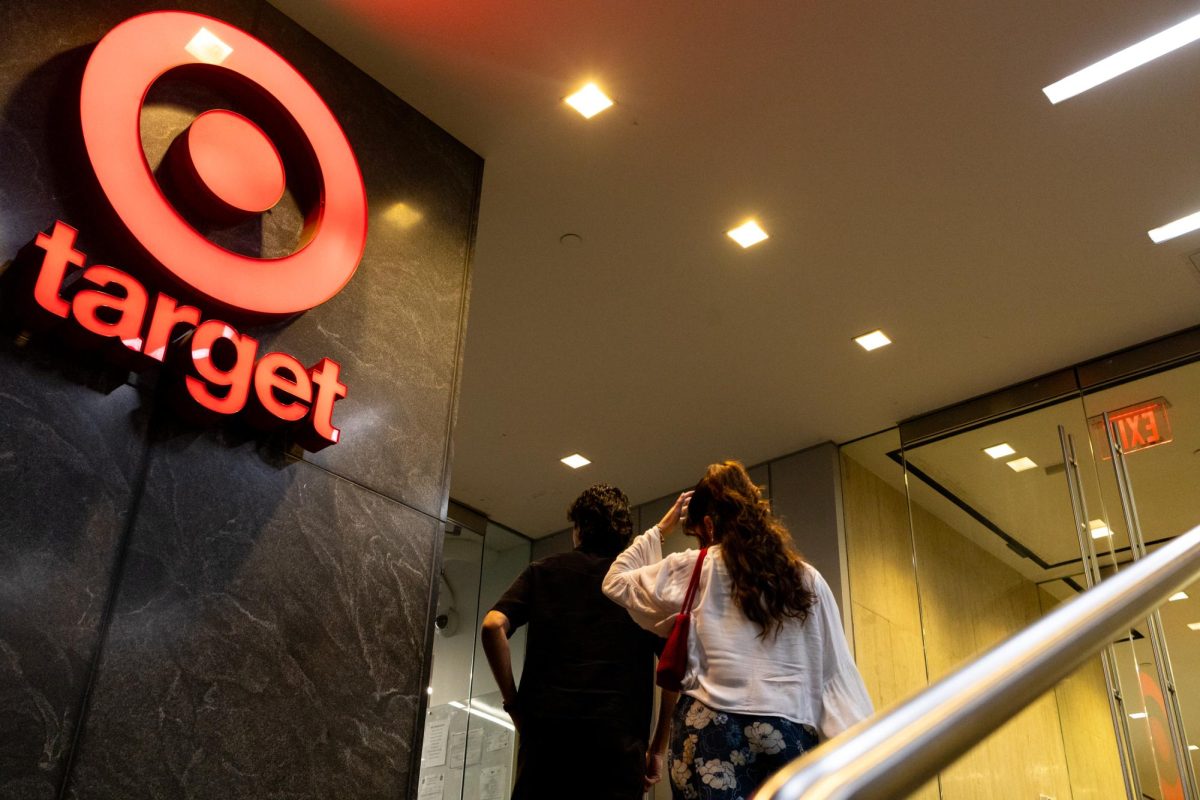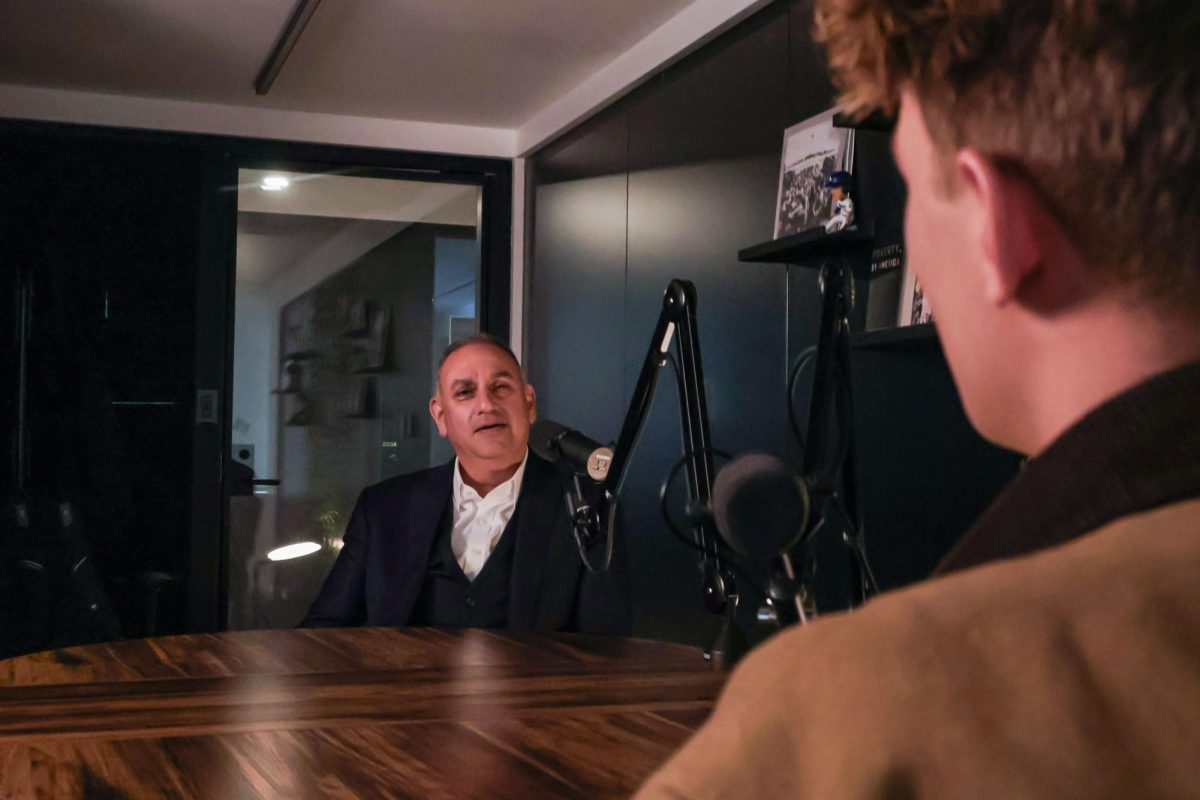Freshman Charlie Wild said he was excited to learn that he’d received $875 more in GWorld dining funds than his peers while living without an in-unit kitchen in Potomac House.
At the start of the semester, he said he figured he could eat off GWorld and cook meals in his room to avoid using the residence hall’s only shared kitchen. But after a month of struggling to find GWorld meals or trying to cook in his kitchen-less room, he said he’s limited in dining options and has resorted to microwavable meals or takeout.
“It’s more of a safety concern,” Wild said. “I don’t think [the kitchen] gets cleaned very often, and I don’t have the cleaning knowledge or supplies to clean an oven or to clean the stove top off, and I don’t want to mess anything up.”
Wild is one of about 175 freshmen living without an in-unit kitchen in the residence hall, navigating how to prepare and consume meals in the Potomac shared basement kitchen. Half a dozen freshmen said the communal kitchen’s two-person limit, along with the dozens of GWorld vendors that are shut down or close early, have restricted their access to meals this semester.
Wild said having access to free delivery from local restaurants through Grubhub has been “super helpful,” but he added that the University should reconsider its policy prohibiting cooking appliances, like toasters, in residence halls. He said the mini-refrigerator in his room could not fit a Brita filter, and the microwave is “extremely slow” heating up his food, making it difficult to store and make meals in his residence hall.
“I initially thought it was great and then upon getting here with everything being closed so early, I’m really wishing I was in South Hall right now,” Wild said.
Stewart Robinette, the assistant dean of students, campus living and residential engagement, said CLRE staff worked closely with GW’s public health and safety and security experts to ensure students could safely utilize the shared community kitchens in their assigned hall. He said of the six residence halls occupied this semester, Potomac is the only residence hall where students do not have in-unit kitchens.
“Students are encouraged to cook and clean and then immediately leave the kitchen area to eat in another location so that their peers are able to rotate into the kitchen for cooking,” Robinette said in an email.
Robinette said staff encouraged students to bring their own kitchen supplies to keep in their units and met with students at the beginning of the semester to explain how to use the community kitchen safely. Staff from Facilities Planning, Construction and Management have also added additional cleaning rotations to all public areas, including community kitchen areas, in line with Centers for Disease Control and Prevention guidelines, he said.
“We thank our residents in Potomac House for their cooperation in following the guidelines we have established for community kitchen use this semester,” Robinette said. “It is a building-wide team effort to help each other out and be respectful of each other’s cooking and meal preparation time during these unusual times.”
Maggie Jones, a freshman majoring in international affairs from Columbia, South Carolina, said she stocked up on bulk groceries from Costco before moving in last month. Jones said she has been heating up microwavable meals in her room when she wants to avoid using the shared kitchen or spending her GWorld funds.
She said has used the shared kitchen on occasion but tries to avoid going during the busiest hour, from 6 to 7 p.m., to decrease the risk of exposure.
She said although every student she’s seen in the basement practices social distancing and wears a mask, sometimes the kitchen will feel “crowded” because students stay to eat and have to take off their masks. She said she and her suitemate prefer to wait until 7:30 p.m., once more students have cleared out, to cook meals together and feel less exposed.
“If it wasn’t for COVID, I wouldn’t mind it as much because I would just be comfortable going down to the basement,” Jones said. “But sometimes there’s a lot of people there, and I can’t go in there and cook because I’m worried about catching COVID with all these people with their masks off eating or it’s over the capacity limit.”
Jones said she has been to several restaurants on campus that are listed as GWorld partners on the University’s dining website, like Chop’t, but was told the “GWorld reader” wasn’t working or that GWorld is no longer accepted. She said sometimes she gets frustrated when she has to go outside to get meals on windy or snowy days, because she would prefer to stay inside.
“It does suck, especially when I’m sick of eating the same things over and over again, and I have to go walk to get food, which is even harder now that a lot of places are no longer taking GWorld because of COVID,” Jones said.
Katrina Hauser, a freshman from New Jersey, said she will buy salad kits from Whole Foods to prepare in her room on days when she doesn’t want to go out to eat but has been mainly eating on GWorld to limit her use of the kitchen. She said when she has used the communal kitchen, everyone has been wearing masks and following social distancing restrictions.
She said she doesn’t mind sharing the kitchen with other people because she expected it when she received her housing assignment and enjoys using her GWorld to find new restaurants. She said the kitchen also has appliances for students to use and said students have been using a GroupMe chat to communicate and coordinate with one another, including asking to borrow kitchen supplies.
“People will ask in the chat ‘Does anyone have a cookie sheet?’ and then we use that to make cookies but also to meet people,” Hauser said.








